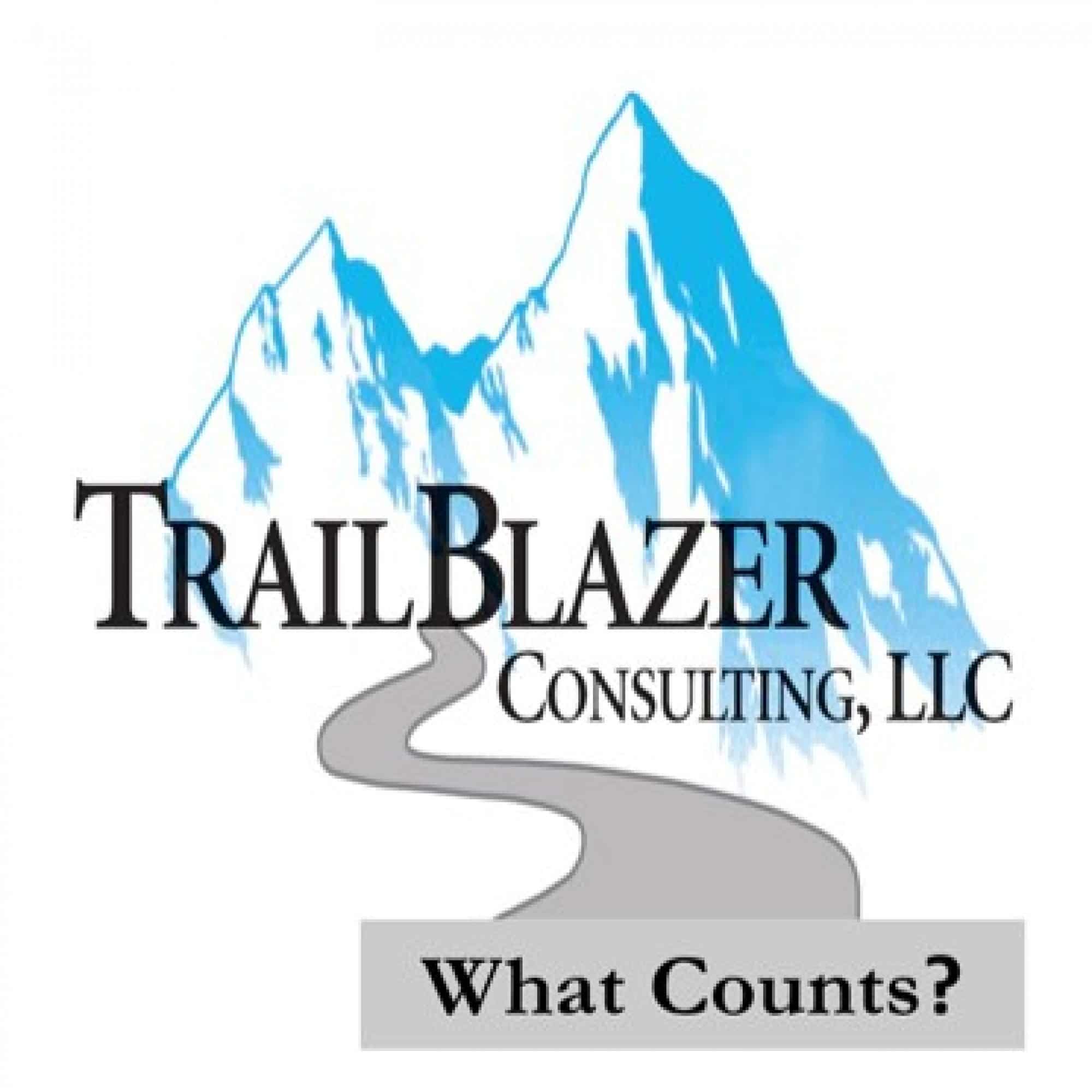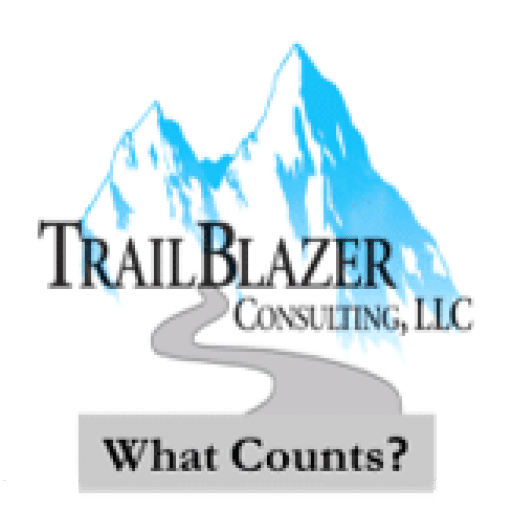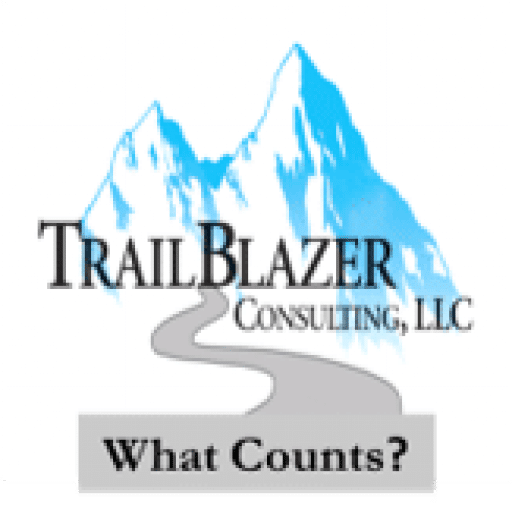Episode Transcript
[00:00:01] Speaker A: Hello. Thank you for joining us. Welcome to what Counts, a podcast where we dive deep into the world of information governance. Here we highlight proven solutions developed through our experience working with companies across various industries, and we talk about how you can apply these solutions to your company.
Whether you're interested in information governance, have a need, or just curious about information management challenges like email management, retention management, or asset data management, this podcast is for you.
This is Lee, and in this episode, Mora and I will talk about financial management tips.
Mora, this is where we get into the, you know, the tidbits of what can help you out, kind of record some of the things that you're doing.
I'm being vague on purpose, so, but choosing the right.
[00:00:50] Speaker B: This is the episode where we talk about how you like to talk to spreadsheets.
[00:00:55] Speaker A: So there's the spreadsheet that you can use.
It'll help your accountant out, since we just talked about them in a previous episode. In a previous episode, you know, you could keep your track of your debits and credits and what's coming in and so forth in the spreadsheet. You could do everything in a spreadsheet, to be honest with you, but your business gets to be too big at some point and too much activity going on.
[00:01:19] Speaker B: I want to stop you for just a second.
You can track your debits and credits and keep do everything in a spreadsheet.
If you understand accounting, fine.
[00:01:29] Speaker A: That's fair. Okay.
[00:01:31] Speaker B: Because the whole concept of debit and credit when I took accounting 101 in college caused me to take that, to drop that class. Actually.
I've learned a lot since then, but at the time, I was, you know, second semester senior year, and I did not want to mess up my gpa. So can you give us a quick explanation or maybe I'll try and give us a quick explanation.
You tell me if I'm right or not.
Basically, it sounds like debit and credit is plus or minus, but it isn't really. It's about what bucket does the money sit in.
So it starts in, you have a budget for, say, payroll, and you've decided that your budget is X dollars and that's the starting balance.
And then as you pay people, you're going to debit out of the budget, the payroll budget account a certain amount, and in each person's individual account, you're going to credit them with the amount you're paying them.
So you're on two sides and it has to balance all the time.
There was $10,000 that we were going to use for Payroll we paid 2,000 into Bob, 6,000 into Tori, and 1,000 each to Debbie and Fred.
Is that 10? I think so.
[00:03:04] Speaker A: What's up on the Internet? How about that debit?
[00:03:06] Speaker B: So.
Exactly. If you don't know accounting, doing that in a spreadsheet is a challenge. That's all I'm saying.
[00:03:16] Speaker A: Yes.
So a debit. Right.
You got it right. Let's put it that way. Represents an inflow of value. I'm reading it. Or an increase in an account, which sounds opposite than the word, to be honest with you. That's the key. That's the problem here. A credit represents an outflow of value or a decrease in an account.
That's the problem. It's just, to me backwards. But for. For accounting people, it's not so the thing. So I suggest you get an application to help you.
QuickBooks is an example of an application that can help. It easily shows you what's coming in and what's going on. Right? You write checks, you can write expenses, or you can pay for expenses that way.
You can also.
It sees the. When you get paid, you create an invoice. And when you get paid, you connect it to your bank account and it'll see when you get paid, and then you just match up these items. Sometimes you get these little curveballs that, you know there's a refund necessary or whatever. And now you got a debit or credit or something. You got to figure that out. But the key, as Maura says, is it has to balance the one shortcoming that I see of QuickBooks. And I mean, maybe I'm not using the full functionality, but I'm not getting six months to a year's worth of forecasting. That's where my spreadsheet comes in. I know my monthly expenses. I know where they fall or what category they fall into. I know what I'm getting from an invoice or payment perspective, accounts receivable.
But QuickBooks is not showing me the cash flow. And so I like to see that in a spreadsheet. And that's where Morris says that I talk to my spreadsheet, because it's true. You know, let's play with this. If we. If we get this amount in next month, then I'm able to pay for this. So what is the spreadsheet showing me? What is it telling me? How long is money going to last? When do we need to do this? X, Y and Z. So that's the forecasting piece that I find to be a little bit of a shortcoming. And I'm sure there's applications out there. It's just once I started on my spreadsheet, I like to stay with my spreadsheet.
[00:05:32] Speaker B: Well, I actually think that, that, that kind of tension between accounting for the actual inflow and outflow, which is what QuickBooks and other similar accounting software packages do very well.
It's different from planning and forecasting and from what we've seen in our clients who are much more bigger organizations than we are and use more enterprise scale accounting softwares. They have a similar problem. It's, it's actually a it there. It's two different functions of accounting for what actually happened and that's going to end up being support for your taxes, for your profit and loss, your balance sheet at the end of the year, making sure that you know what happened to all the money that came in and where did it go.
The forecasting is a completely different activity and accounting software doesn't do it very well. It's, it's tempting to want to do them in the same place because it's the same money.
Right? But in fact it's two different functions. So I am not surprised that that QuickBooks is good at one thing and not as good at the other. It is, it is always funny to me when you talk to the spreadsheet because frequently folks, I am on the phone when that happens and then he just ignores me.
So busy, busy.
[00:06:58] Speaker A: So let, well, let's dive a little bit deeper into QuickBooks. But before that I want to just throw a little tangent in there since this is, since I started it off with financial tips.
It's key to get a bank account. We may have mentioned that before, but I'm not positive. You got to get a bank account for your business, keep it separate from your personal life. That's why you created the structure that you did, for instance, an llc, so that things can be separated. And then you want to look at debit cards, credit cards.
And we always have that internal struggle of we want one, one of us wants mileage or points for airlines and one of us wants cash back. I'll let you guys guess as to who's who, but those are some of the other things that you really want to look at from a financial perspective.
[00:07:48] Speaker B: And apart from the, the mileage versus cash back, the points versus cash back on the credit cards, it is a good idea to have a corporate credit card because if you're going to be traveling or, or making sort of incidental purchases, a credit card is a much safer way to do that than a debit card. Debit card is basically cash out of your account. So you could write a check, you could do ach transfers bank to bank, and you might do that for a big purchase if you're, you know, buying equipment or you're buying a big influx of supplies or raw materials. But if you have to send somebody to a conference or send them to a client site, they need a way to pay for the ticket, the airline ticket, the hotel, the rental car.
And actually, one of the things we learned early on was our corporate credit cards allowed us to add a car rental rider for business travel. So then you don't have to go for all the extra insurance that the car rental company offers you. Or one of our clients wanted us to show that we had a corporate car rental insurance policy, which was bizarre because for that client, we weren't renting any cars. So we really didn't understand.
But the per. Incident, you know, per rental riders that we were able to get through the corporate credit card was a huge help to us, and we haven't needed it ever, thank goodness. Knock on wood. But we. But we have it. And it was it. And it satisfied that client that wanted us to have a corporate car insurance policy, which wasn't just a thing we didn't expect to be asked.
So.
[00:09:36] Speaker A: Very true.
[00:09:36] Speaker B: So that, to me, is a reason to have the credit card and then the one. Which one you want. Yeah. That's a personal decision.
[00:09:45] Speaker A: Yeah.
Jumping back to QuickBooks, then you got it. You got to set up QuickBooks. You want to set up your company profile or whatever program you're going to use, Right? I'm not. This is not all about QuickBooks. It just happens to be the one that we use.
You got to set up the company profile so that it starts to understand who's the important players, who has access and so forth. Inventory. I'm sorry, invoice management. Now, that's the key, because you want to get paid.
There are so many sophisticated ways of doing this these days, with stripe being a little square that I've gone to a farmer's market, and people at the booths are using these little squares, and you just take your debit or credit card and boom, your purchase is done. And your email, invoice or email receipt is sent to you. So there's a lot of things to look into.
We're not using that because we are a service business, and some of our clients, as Maura was saying, very large. So our. Our invoices are large. So we submit our invoices to their accounts Payable departments. So it's good to have an invoice template. It's good to have all your information on the invoice template so that they know where different companies require different things. But as long as you have your email, your phone number, an address to find you and maybe and your account information on your invoice, those are going to be the key things that other.
[00:11:10] Speaker B: Companies the payment, how you want to get paid could be account information. If you are going to be paid by an ACH transfer, which most big companies, that's what they want and it's certainly easiest for us. But we have had companies over the years who paid us by check and we had to tell them where to mail the check.
And even for those companies that are using Square or Stripe or one of the other credit card processing applications behind the scenes that has to be connected to a QuickBooks or something because you still need to account for I I had this product or I you typically product like I had this product and I sold it. And so there was a cost of creating the product, the cost of goods sold and then the, the revenue that came from buying it, from selling it to someone. And depending on the product and the location, you may also have had sales tax on that product. And you, your accounting software will help you separate the, the revenue that comes to you versus the sales tax that you owe to the state or local authority.
[00:12:18] Speaker A: Yes.
One of the key questions or one of the key things that QuickBooks keeps track of for us is where our clients are located and in which state. Because my accountant always asks me, how much did you make in this state? How much did you make in that state?
[00:12:35] Speaker B: So forth.
[00:12:35] Speaker A: So yeah, right.
[00:12:36] Speaker B: Because as a services company we end up paying typically income tax to all the states where our clients are located, where we earn money.
And with sales tax, a similar, a similar thing, there's a lot more. There are many rules on both things depending on the states where you are. But the account, the accountant and the accounting software packages will help help you keep track and follow all those rules so you don't get caught in just caught in something you didn't know you had to do.
[00:13:07] Speaker A: Yep.
And the only other thing is just reconcile your transactions monthly would be good. You could go as far as you could go far as you want, but three months is a little far.
[00:13:21] Speaker B: I suggest three months is a little far. Yeah. And the reconciliation is as transactions occur. Quickbook just kind of piles them up. You have to do the matching too. This is the bank transfer that paid this invoice or this credit card charge went to pay this bill, that kind of thing, right?
[00:13:41] Speaker A: Yep, yep. And if Maura talked about the chart of accounts, but make sure you talk to an accountant for setting up that charity of account. That's. That's key, too. Unless you think you can get it off the Internet and do it yourself. Each business is little unique, so there are certain items that each business, product or service business may need in the chart of accounts.
[00:14:03] Speaker B: And the chart of accounts is basically the list of categories that your debits and credits are going to go into.
And they get treated differently from a tax perspective, from a profit perspective, from a balance sheet perspective.
And so the software and the accountant will help sort through all that.
[00:14:23] Speaker A: Yeah, I mean, the only. The other thing in this area is knowing, and I'll call it multiple. But you need to know where your breakeven point is. That's key in any business, even if you're a bakery, and I think we talked about in one of our episodes a long time ago, if you're buying flour and pounds and pounds of sugar and flour and so forth, but you have no idea how much you're actually purchasing and how much it takes to put into the cookie or the bread or whatever it may be, you really do need to at least go through it, you know, once a year to make sure you understand that your. Where your profits are and how you can get profits out of what you're doing.
[00:15:02] Speaker B: Right.
[00:15:03] Speaker A: Understand your expenses.
[00:15:04] Speaker B: And that gets us to a question of direct and indirect cost, because buying the flower is a direct cost.
Baking things in a space in an oven, you might have some indirect costs there because you have to rent the space and then figure out how. How does that cost of space kind of get divided over all the cookies you make?
Or how does the. So what is the total cost that it takes to deliver what you're delivering? That's the. That's the key. And then subtract that total cost of delivering this thing, whether it's a product or a service, against what you get paid for that.
And then you have to take out the taxes on it.
So we're going to talk, I think, in the next episode about like, what are those granular pieces and how do you need to track them and how do they differ if you're a product company or service company?
[00:16:05] Speaker A: Yeah, yeah. So if you have any questions, you could call us, but we'll be happy.
[00:16:14] Speaker B: You should ask your accountant.
[00:16:16] Speaker A: But there might be other professional individuals that be. Have a much more solid answer, but happy to talk. Please, please send us an email at info trailblazer.us.com or look us up on the web at www.trailblazer.us.com.
the consultants Trailblazer. Not the lawyers or the accountants or any or HR company or anything like that. We are Trailblazer Consulting.
Thank you for listening and please tune into our next episode. Also, if you like this episode, please be a champion. Share it with people in your social media network. As always, we appreciate you the listeners. Special thanks goes to Jason Blake created our music.
[00:16:56] Speaker B: Oh and follow us on your favorite podcast or YouTube channel.
[00:17:03] Speaker A: Excellent.
[00:17:06] Speaker B: All right, thanks everyone.


